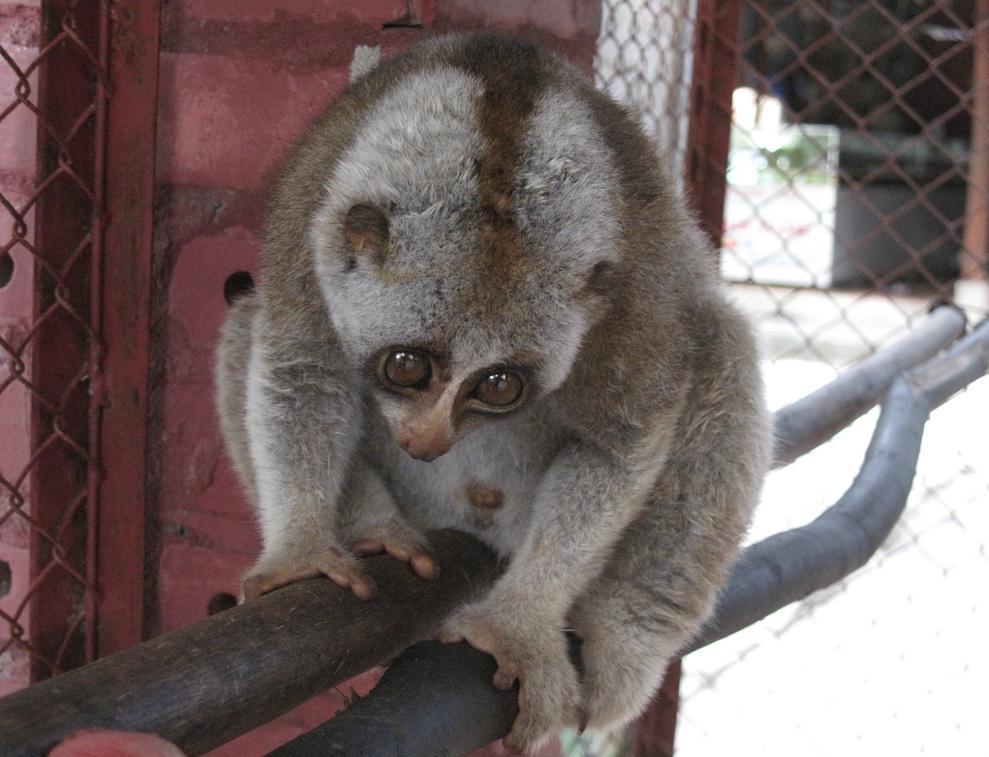At AllThingsNature, we're committed to delivering accurate, trustworthy information. Our expert-authored content is rigorously fact-checked and sourced from credible authorities. Discover how we uphold the highest standards in providing you with reliable knowledge.
What Is Primate Conservation?
Primate conservation is the protection of primate species throughout the world. Many species of primates are at risk of becoming extinct in the wild due to hunting, loss of habitat, and competition with humans for food and resources. In order to protect these animals, conservationists gather data about them and determine ways to protect them and the environments they are found in. Conservation programs may also include centers that can treat injured primates as well as breeding programs to help increase the populations of various primate species.
Of the approximately 250 species of primates on the planet, about 80 are considered endangered. Many of these primate species have wild populations of less than 1,000 members. With so many primates in danger of extinction, primate conservation is a critical part of protecting the biodiversity of the planet. Evolutionarily, primates are closely related to humans, making their study invaluable in understanding our own species.

In order to successfully conserve primate species, conservationists need to understand primates and how they interact with their various environments. Conservationists may work with a particular species or in a certain geographic area to gather information about wild populations. This information can be used to develop policies that can protect primates or to develop methods for protecting the environment that can help primates thrive in the wild.

Another part of primate conservation is the protection of individual primate species. Conservationists may work with local human populations to establish ways of coexisting peacefully with primates. In many parts of the world, primates are hunted and eaten for food or destroyed as pests, so conservationists may need to work with people to find other sources of food or alternative ways to keep primates out of crops. In some cases, rehabilitation centers for injured or sick primates may also treat primates and then return them to the wild.
For primate species with critically low numbers, primate conservation may also involve captive breeding programs. Zoos are the most common participants in these programs and frequently lend out primates to other zoos in order to foster genetic diversity within captive primate populations. Though most primates born in zoos remain in them for the duration of their lives, many other animal species have been successfully raised in captivity and then released into the wild as adults. If captive-raised primates have a healthy environment to be released into, this type of primate conservation may be able to restore some wild primate populations.
Frequently Asked Questions
What is primate conservation and why is it important?
Primate conservation refers to the research, preservation, and management efforts aimed at protecting primates and their habitats. It's crucial because primates play significant roles in their ecosystems as seed dispersers and indicators of forest health. Moreover, many primate species are endangered due to habitat loss, hunting, and illegal trade, with the International Union for Conservation of Nature (IUCN) reporting that over 60% of primate species are threatened with extinction.
What are the main threats to primate populations worldwide?
The primary threats to primates include deforestation for agriculture and logging, which destroys their habitats; poaching for bushmeat and the illegal pet trade; and diseases, which can be exacerbated by human encroachment. Climate change also poses a long-term threat by altering the ecosystems primates rely on. These factors contribute to the alarming rate of primate species facing extinction risks.
How does primate conservation benefit human communities?
Primate conservation benefits human communities by maintaining biodiversity and ecosystem services such as pollination, seed dispersal, and climate regulation. Healthy primate populations can also support ecotourism, creating jobs and income for local communities. Furthermore, primates are key research subjects in medicine and genetics, offering insights that can lead to medical advancements benefiting humanity.
What are some successful primate conservation strategies?
Successful primate conservation strategies include habitat protection through the establishment of reserves and national parks, anti-poaching patrols, and reforestation projects. Community-based conservation, which involves local people in decision-making and benefits, has proven effective. Additionally, captive breeding and reintroduction programs, alongside international laws like CITES, help protect primates from illegal trade.
How can individuals contribute to primate conservation efforts?
Individuals can contribute to primate conservation by supporting reputable conservation organizations, adopting sustainable living practices to reduce habitat destruction, and advocating for policies that protect primates and their habitats. Educating oneself and others about the importance of primates and the threats they face can also foster a conservation ethic that drives collective action.
What role do international agreements play in primate conservation?
International agreements, such as the Convention on International Trade in Endangered Species of Wild Fauna and Flora (CITES), play a critical role in primate conservation by regulating the cross-border trade of primates and their products, helping to prevent illegal trafficking. Agreements like the United Nations' Convention on Biological Diversity also promote global cooperation in conserving biodiversity, including primates.
AS FEATURED ON:
AS FEATURED ON:












Discuss this Article
Post your comments